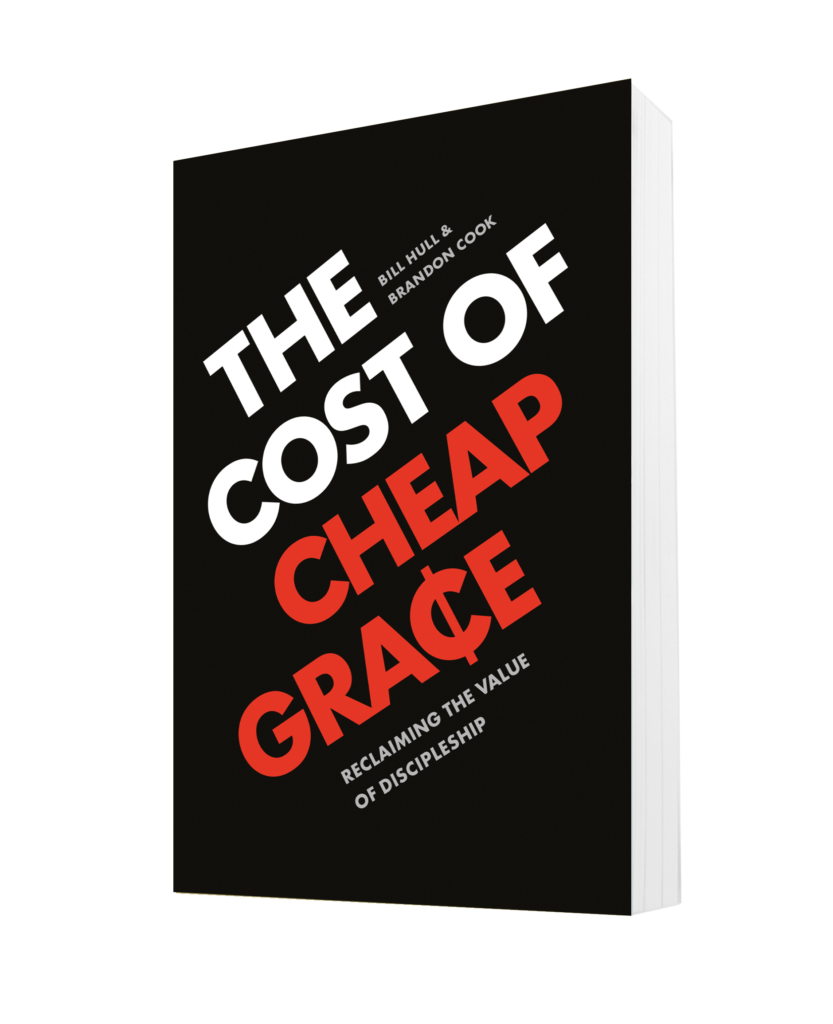Starbucks provides a great example of using language to invite people into a new way of thinking. When I’m in my local (non-Starbucks) coffee store, I often ask for a “grande.” To which the barista replies, “You mean a medium?” “Oh, right, I say . . . yes, a medium.” Starbucks, to create a culture in which people thought about coffee in a new way—as an exotic experience—and to claim mindshare in the world of competitive coffee, imported Italian language (and threw in “tall”) to denote its sizes: tall, grande, venti. To build a distinct culture for Starbucks, the company incorporated language which has become, for some, a normative way of thinking about ordering coffee. This changes the experience of the consumer, whether they are conscious of it or not. That’s the power of language: It creates a normative way of thinking within us.
Churches aren’t businesses, and Christian leaders are not business leaders, but they are fighting for mindshare; they must capture the attention and the imagination of those who follow them. Our lingua franca matters. Our vernacular—the language we use most naturally and normatively—reveals how we view reality. In the early church, the phrase “Jesus is Lord” was a loaded one that flew in the face of the dominant culture. It was a call to a revolutionary way of living based not in empire but in God’s Kingdom. It was, in fact, treasonous language. It was far more potent than what we now mean by “being a Christian,” which can mean anything from being a sincere and devoted follower of Jesus to being born into a Christian home.
I cringe when I hear people say, “I go to church at Long Beach Christian Fellowship.” I know what is meant by the phrase, and I don’t make a fuss over it, but think about the reality that phrase invokes: I go there, to church, then I leave. It creates the idea—and a culture around the idea—that church is a place we go to rather than the reality of a people on a journey and a mission together. In the New Testament, “church” is presented as a people doing life together (see Acts 2:42-47), learning to honor and love one another (Romans 12:10). It is a qualitative reality, based on a way of being together. Our language, on the other hand, often encourages a consumer mind-set, not a mind-set of participation. I coach people to use the language “I’m a part of LBCF” or “I’m a part of the community (or family) at LBCF.” This language invites an entirely different reality than “going to church.” By the same token, we don’t call our worship gatherings “services”: Although it had a beautiful intent in its earlier usage, evoking worship as an act of love and service to God, this word has become eroded through time and imagination to mean very little other than a religious liturgy. Instead, we call them “gatherings” or even “family gatherings.” This change in language invites an entirely different world of meaning, imagination, and possibility.
Language, used powerfully, can always call people into a new reality. It can build new culture. Of course, if people cling to thinking of church as a place they go rather than a community that they embody, changing the language will have little effect. Still, language is a good place to start.

Taken from Cost of Cheap Grace: Reclaiming the Value of Discipleship by Bill Hull and Brandon Cook. Click the book to read a free excerpt from chapter 1.
Copyright © 2019. Used by permission of NavPress. All rights reserved. Represented by Tyndale House Publishers, Inc.

